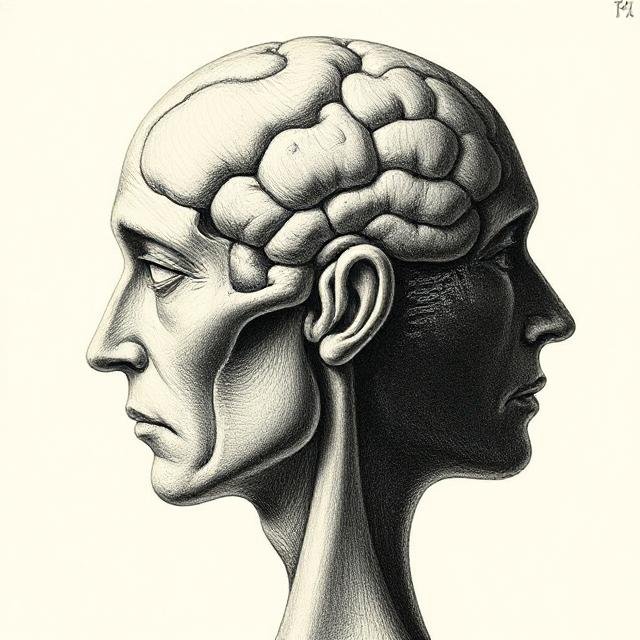What Is Narcissistic Personality Disorder (NPD)?
Narcissistic Personality Disorder is a mental health condition characterized by a long-term pattern of grandiosity, need for admiration, and lack of empathy for others. These traits often lead to significant problems in relationships, work, or other areas of life.
People with NPD might appear confident or even charismatic, but beneath the surface, they often struggle with fragile self-esteem and a deep need for validation.
According to the DSM-5-TR (American Psychiatric Association, 2022), NPD is one of the Cluster B personality disorders, alongside borderline, histrionic, and antisocial personality disorders.
Key Traits and Symptoms of NPD
While not everyone with narcissistic traits has NPD, people with the disorder typically show patterns such as:
- Grandiosity — an exaggerated sense of self-importance or uniqueness.
- Fantasies of unlimited success, power, brilliance, or beauty.
- Belief in being “special” and needing to associate only with high-status people.
- Excessive need for admiration.
- Sense of entitlement.
- Exploiting others to achieve personal goals.
- Lack of empathy.
- Envy of others, or belief that others are envious of them.
- Arrogant or haughty behaviors.
However, beneath this outward confidence, many people with NPD feel insecure, vulnerable, and hypersensitive to criticism.
Types of Narcissism: Overt vs. Covert
Modern psychology often distinguishes between overt and covert narcissism:
- Overt (Grandiose) Narcissism: Characterized by obvious arrogance, dominance, and a need for admiration. These individuals are often loud, assertive, and demanding.
- Covert (Vulnerable) Narcissism: Less visible but equally intense. Individuals may appear shy, sensitive, or introverted yet harbor resentment, envy, and fragile self-esteem.
Research suggests that covert narcissism is frequently overlooked because it can resemble social anxiety or depression (Pincus & Lukowitsky, 2010).
What Causes Narcissistic Personality Disorder?
There’s no single cause of NPD. It likely arises from a complex mix of:
- Genetics: Some studies suggest a heritable component to narcissistic traits.
- Early Environment: Excessive pampering, neglect, or inconsistent parenting can contribute to maladaptive self-esteem regulation.
- Neurobiology: Some research points to differences in brain structures related to empathy and emotional regulation.
- Cultural factors: Modern “achievement culture” and social media may reinforce narcissistic behaviors, though this alone does not cause NPD.
The disorder often emerges in late adolescence or early adulthood.
Diagnosis of NPD
Only a licensed mental health professional can diagnose NPD. Diagnosis usually involves:
- Clinical interviews.
- Observation of behaviors over time.
- Assessment tools for personality disorders.
NPD is diagnosed when narcissistic traits significantly impair daily life or relationships. It’s important to differentiate NPD from narcissistic traits that might appear occasionally in otherwise healthy people.
Treatment and Challenges
Treating NPD is challenging because:
- Individuals often do not recognize their behavior as problematic.
- They may resist therapy or blame others.
- Fragile self-esteem makes it difficult to tolerate criticism or explore vulnerabilities.
However, therapy can help:
- Build self-awareness.
- Improve empathy.
- Learn healthier ways to relate to others.
Approaches like psychodynamic therapy, cognitive-behavioral therapy (CBT), and schema therapy can be beneficial, though progress is often slow and requires sustained effort.
Living or Working with Someone with NPD
Relationships with individuals who have NPD can be emotionally draining. Partners, family members, or colleagues may experience:
- Emotional manipulation.
- Gaslighting.
- Cycles of idealization and devaluation.
- Constant criticism or blame.
Practical strategies include:
- Setting and enforcing clear boundaries.
- Avoiding power struggles.
- Practicing self-care.
- Seeking support from friends, family, or therapists.
Remember, you cannot change someone with NPD, but you can protect your own well-being.
When to Seek Help
Consider seeking professional help if:
- You suspect you or someone close to you might have NPD.
- You’re in a relationship that feels toxic, confusing, or emotionally harmful.
- You’re struggling with anxiety, depression, or low self-esteem related to dealing with someone with NPD.
Therapy can offer tools for understanding, coping, and rebuilding confidence.













